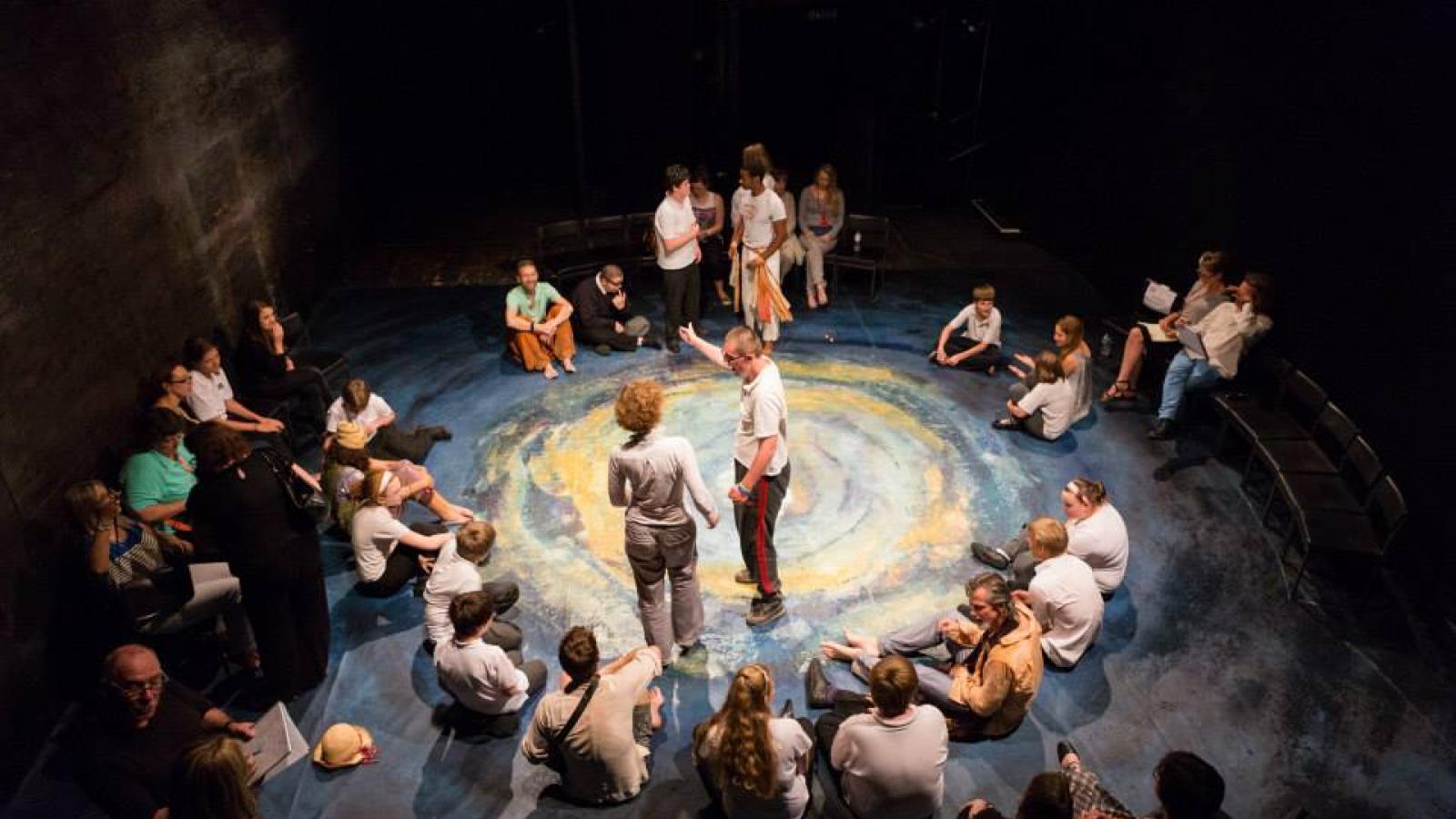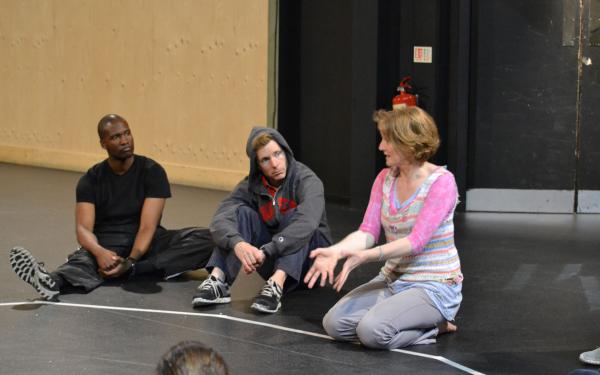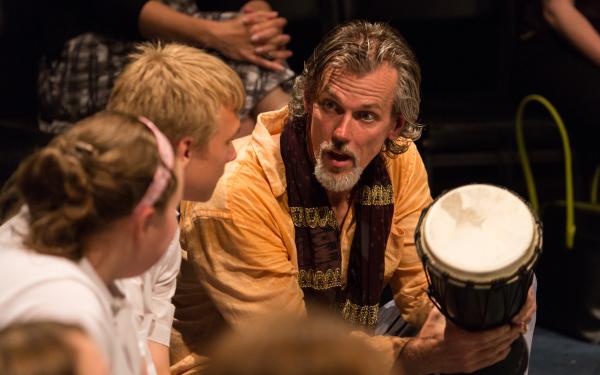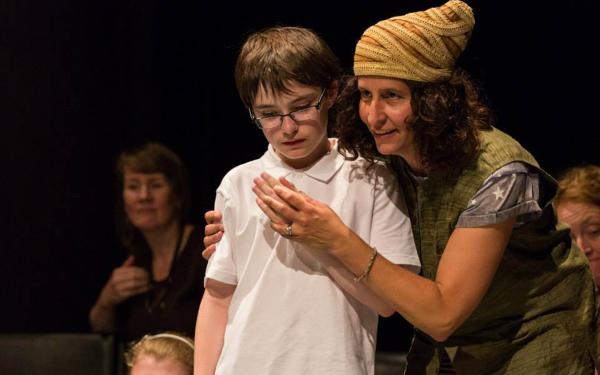The Shakespeare and Autism Project is a groundbreaking, internationally recognized blend of civic engagement, curricular training, and collaborative research.
Housed in the Department of Theatre, Film, and Media Arts, the project continues to train graduate and undergraduate students in the Hunter Heartbeat Method, created by Kelly Hunter, Artistic Director of Flute Theatre in London, UK. Led by Associate Professor Kevin McClatchy, the students facilitate workshops with children on the autism spectrum for ten weeks each Spring semester.
Describing the Hunter Heartbeat Method, Hunter states, "The distinctive methodology I have created uses Shakespeare to release the communicative blocks within children with autism. Two major themes underpin the work: the rhythm of the iambic pentameter, which creates the sound of a heartbeat, within which the children feel safe to communicate. The second is an exploration of the mind's eye, allowing children to explore imaginative worlds, which may be otherwise locked away."
The initial effort of the Shakespeare and Autism Project (2011 - 2015) was a pioneering research partnership between the department and the Wexner Medical Center's Nisonger Center. The research addressed the issue of whether sensory drama games using Shakespeare's text can effectively break through the communicative blocks of autism in children.
The primary fieldwork of the Shakespeare and Autism research involved a longitudinal research study in which teams of trained Ohio State faculty and students employed the Hunter Heartbeat Method with autistic children at two Columbus-area schools over the course of forty-two weeks. The Nisonger Center researchers, led by Nisonger Director Marc Tasse and PhD student Maggie Mehling, administered tests to the child participants throughout the workshop process, generating data to determine the work's effectiveness in piercing the core features of autism.
The Nisonger research finding revealed statistically significant gains in a number of communicative and social areas for the children, confirming the Hunter Heartbeat Method as a viable, effective intervention.
Originally funded in 2010 by an Ohio State University Outreach and Engagement Impact Grant, the Shakespeare and Autism Project is now firmly established in the department’s curriculum. While their research has concluded, the Nisonger Center remains an active partner in the project, contributing counseling support at every workshop and delivering special class sessions in exploring the core features of autism.
The Shakespeare and Autism Project has an ongoing collaboration with Bridgeway Academy in Columbus. Over the past five years, the Shakespeare and Autism/Bridgeway Academy internship has provided an immersive pre-professional experience to an undergraduate student whose career interests are in teaching or drama therapy. Ohio State students and recent graduates also visit Bridgeway classrooms each semester to facilitate workshops and collaborate on creating new works with three Bridgeway drama groups.
Thus far, the Shakespeare and Autism Project has reached more than 430 children through workshops and interactive performances of The Tempest, trained more than 100 Ohio State students and theatre professionals and educators across the country in the Hunter Heartbeat Method, and has published scientific research in support of the intervention's effectiveness. The impact of the Shakespeare and Autism Project and its collaborative partners continues to grow, reaching people locally, nationally, and internationally.
Since 2016, the project has received generous additional funding from the Patricia Heaton-Hunt and David Hunt Shakespeare and Autism Fund.
The Shakespeare and Autism Project is led by Kevin McClatchy, associate professor in the Department of Theatre, Film, and Media Arts. McClatchy was part of the original teaching artist team that worked with Kelly Hunter during the research project. McClatchy also originated the role of Prospero in Hunter’s groundbreaking adaptation of The Tempest, which premiered at the Royal Shakespeare Company in 2014.




